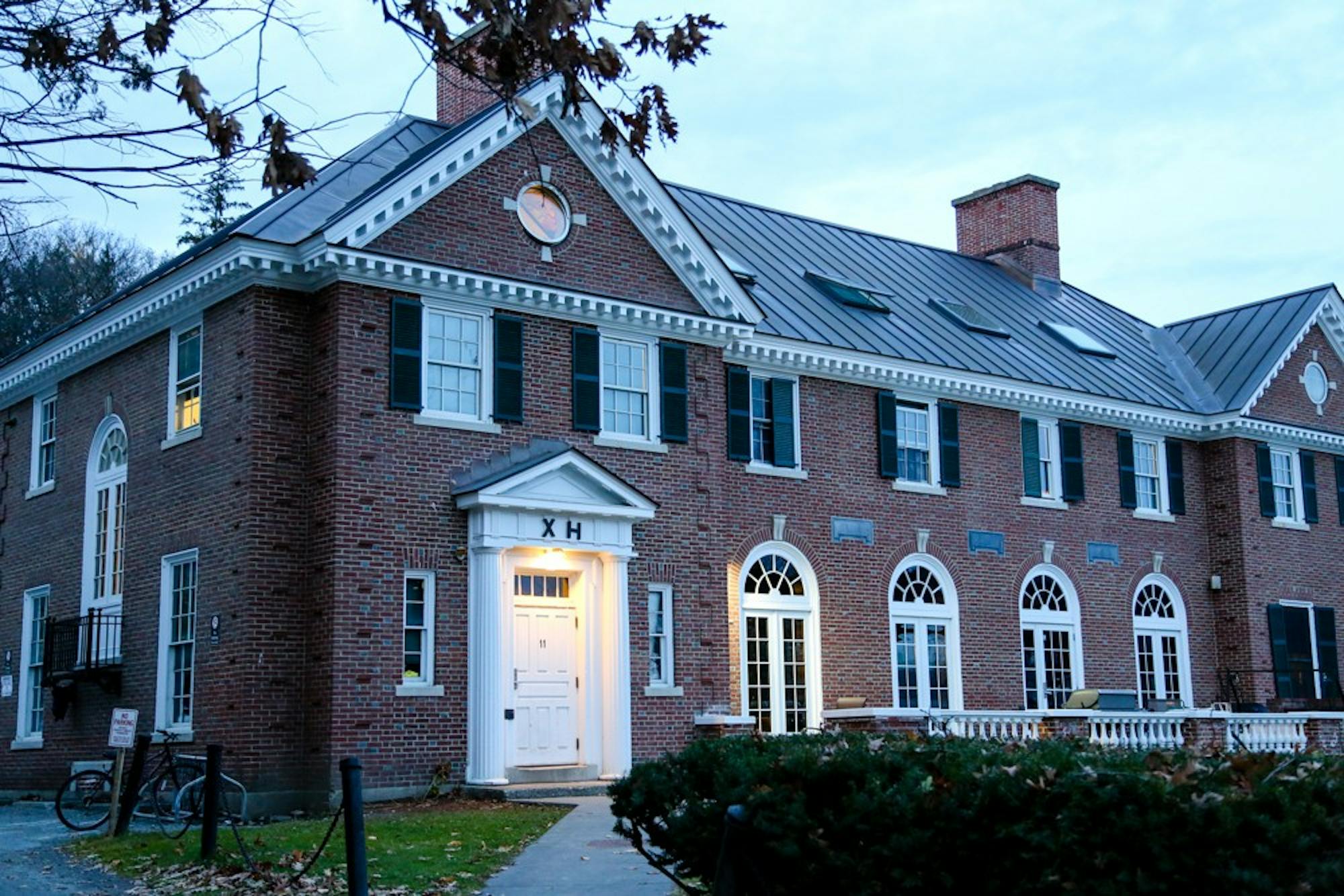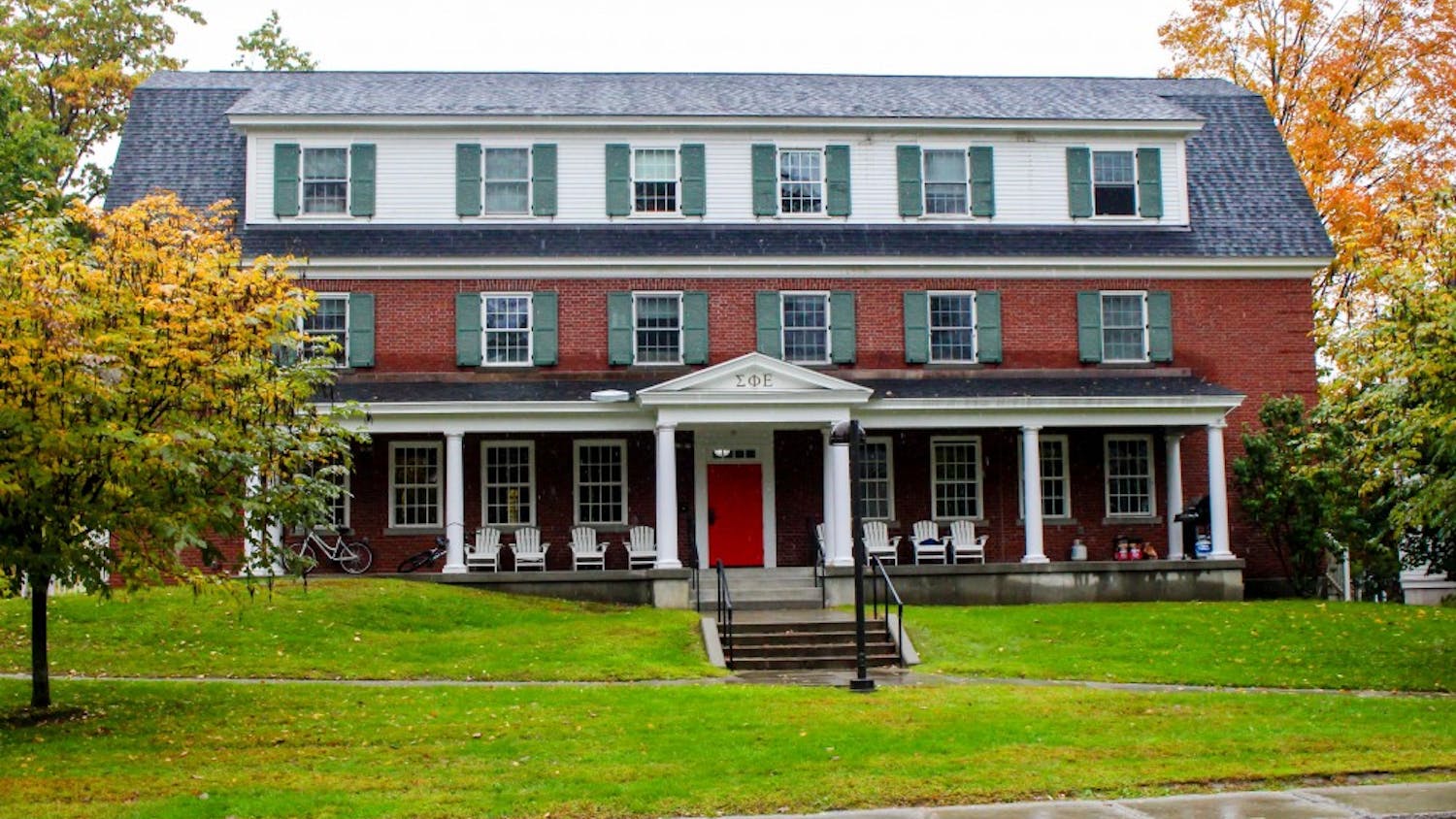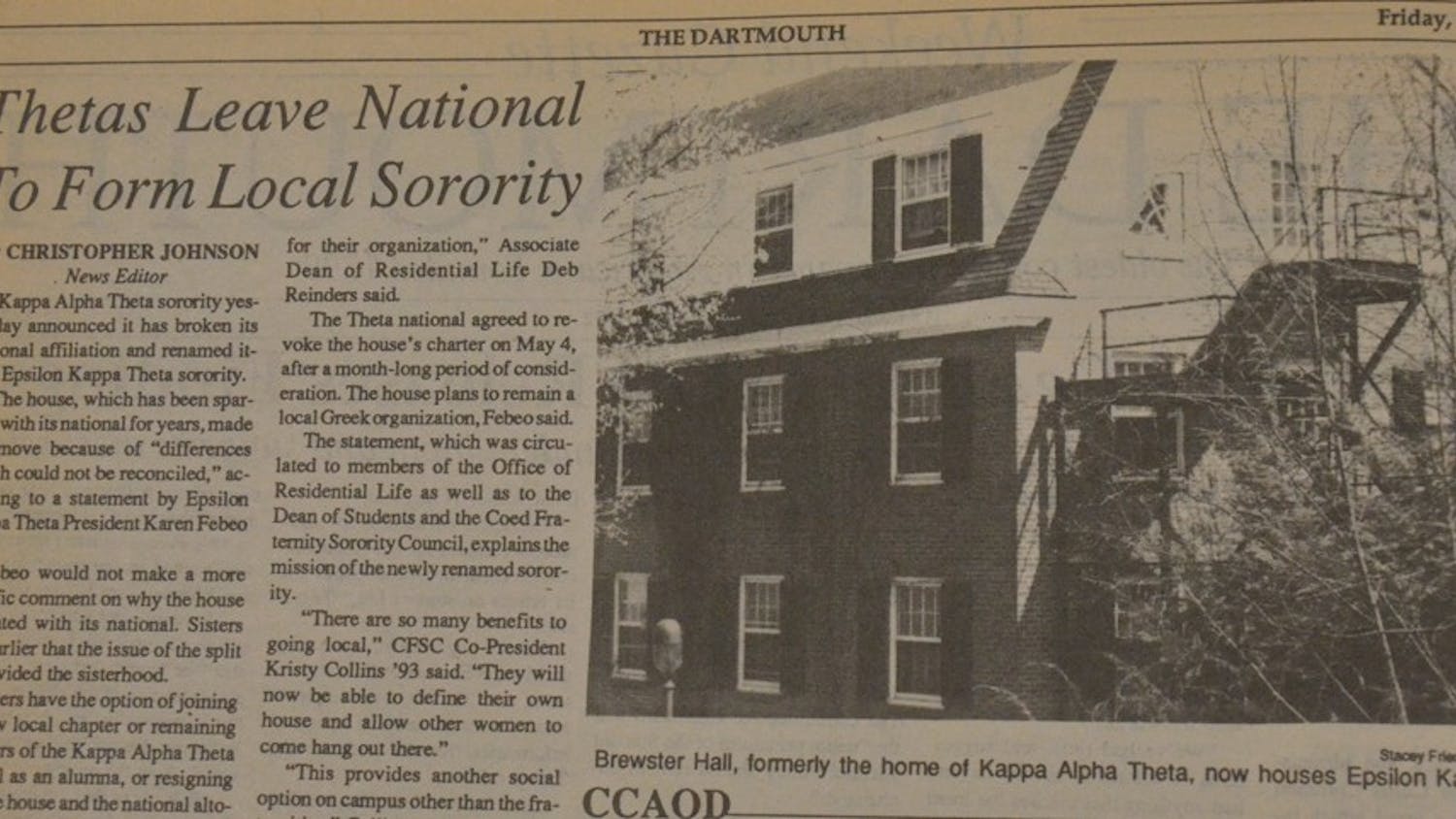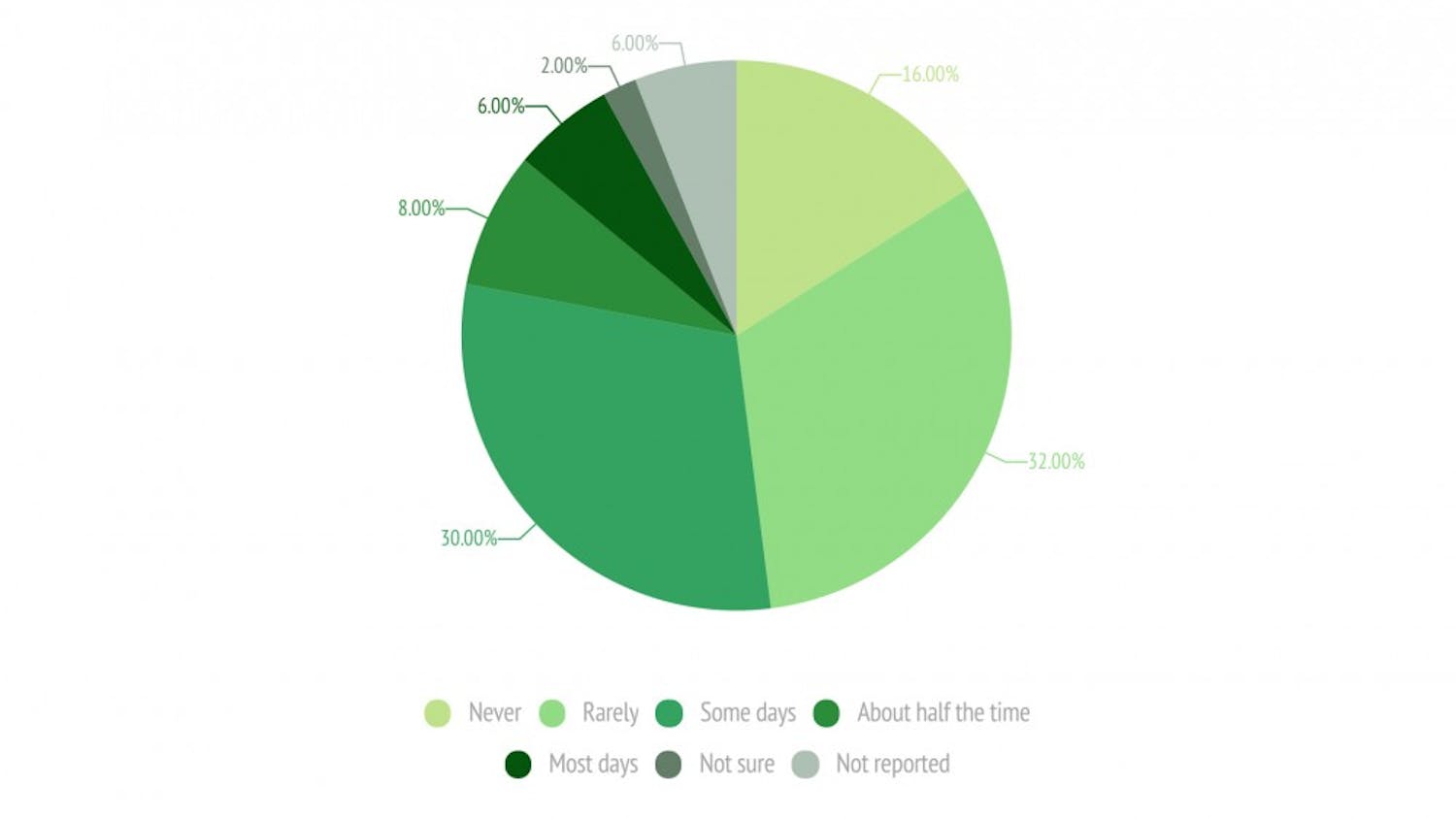Three Dartmouth Greek organizations — Alpha Phi sorority, Chi Heorot fraternity and Zeta Psi fraternity — are currently under suspension.
According to Katharine Strong, director of the Office of Community Standards and Accountability — formerly known as the Office of Judicial Affairs — Zeta Psi’s two-term suspension came as a result of possession and service of hard alcohol during the summer term of 2019. Alpha Phi’s one-term suspension came as a result of activity occurring in fall terms of 2016, 2017 and 2018 that violated Dartmouth’s hazing and alcohol policies.
The case of Chi Heorot is currently open, but according to Office of Greek Life director Brian Joyce, his office temporarily suspended the house for health and safety violations related to overcapacity and the town of Hanover pulling its place of assembly permit.
According to Joyce, on Oct. 19, Chi Heorot’s permit of assembly was revoked, and another incident that occurred on Oct. 30 violated the standards of permit revocation.
According to emails sent out to campus over the College’s listserv, Chi Heorot hosted a “Hi-Lighter 19F” party, which was open to campus, including members of the Class of 2023, on Oct. 19. On Oct. 30, the fraternity hosted two performance groups for a show open to campus.
The incidents on these two days caused the house to be placed under temporary suspension, which will remain in effect until the Office of Community Standards and Accountability is able to complete its disciplinary process.
Hanover fire marshal Michael Hinsley said that Chi Heorot’s violations will legally limit its ability to bring non-residents into the house.
“Offering people a place of assembly without a place of assembly permit is a violation of New Hampshire law,” Hinsley said. “The residents of the house are allowed to live in it, but their ability to have parties and have anybody that is a non-house resident is prohibited.”
According to Strong, Zeta Psi received two terms of suspension, for the summer and fall terms of 2019, followed by one term of alcohol probation during the winter term of 2020 and one term of organizational college probation in the spring term of 2020. The organization is also required to participate in the Brief Alcohol Screening and Intervention for College Students program and implement alcohol management programs for their organization. Strong said that Zeta Psi’s restrictions will be slowly lifted in a “stepped approach” to allow the fraternity to come back into good standing with the College.
This stepped approach is a commonly used practice for bringing an organization back into good standing, according to Strong. She noted that one of the most important components is the educational and engagement work that a house does.
“The real work when an organization is on probation is that educational piece,” Strong said. “Engaging with Greek life, engaging with their national organization, engaging with alumni, to make sure that as they reenter into good standing with the College that good standing is maintained.”
Alpha Phi received a suspension for the fall term of 2019. The organization is also required to participate in BASICS and engage with the Office of Greek Life as well as its national leadership to implement educational initiatives. Strong noted that her office considers the separation between those who violated policies and those who will be impacted by the College’s sanction.
“Organizations shift as students come and go,” Strong said. “So it’s hard to compare where an organization was four years ago to where it is now. We are constantly working with the current organization. When you hear me talk about Alpha Phi, the report is about behavior from 2016, [and] the people who participated in that behavior may not be here anymore.”
Joyce says that the Office of Greek Life sees these organizational violations as an opportunity to improve the culture of Greek life as a whole.
“We use these opportunities as educational moments to educate our community, the chapters [and] fraternity and sorority members about how to improve the culture within our chapters and within our community,” Joyce said. “For us, these are educational moments.”
The suspension of these three organizations follows the recent suspension of Phi Delta Alpha fraternity in the summer, the three-term suspension of Kappa Kappa Kappa fraternity starting in winter 2018, and the revocation of the charter of Dartmouth’s Sigma Phi Epsilon fraternity in fall 2018. In 2015, Tabard co-ed fraternity was suspended for three terms, Sigma Alpha Epsilon fraternity’s charter was revoked and Alpha Delta fraternity was derecognized.
According to Strong, the future of Greek organizations at Dartmouth lies within the decisions of their members.
“The duty of the organization is to determine how they’re going to move forward, and we’re dealing with people being people,” Strong said.
Representatives from the three Greek organizations could not be reached for comment.




